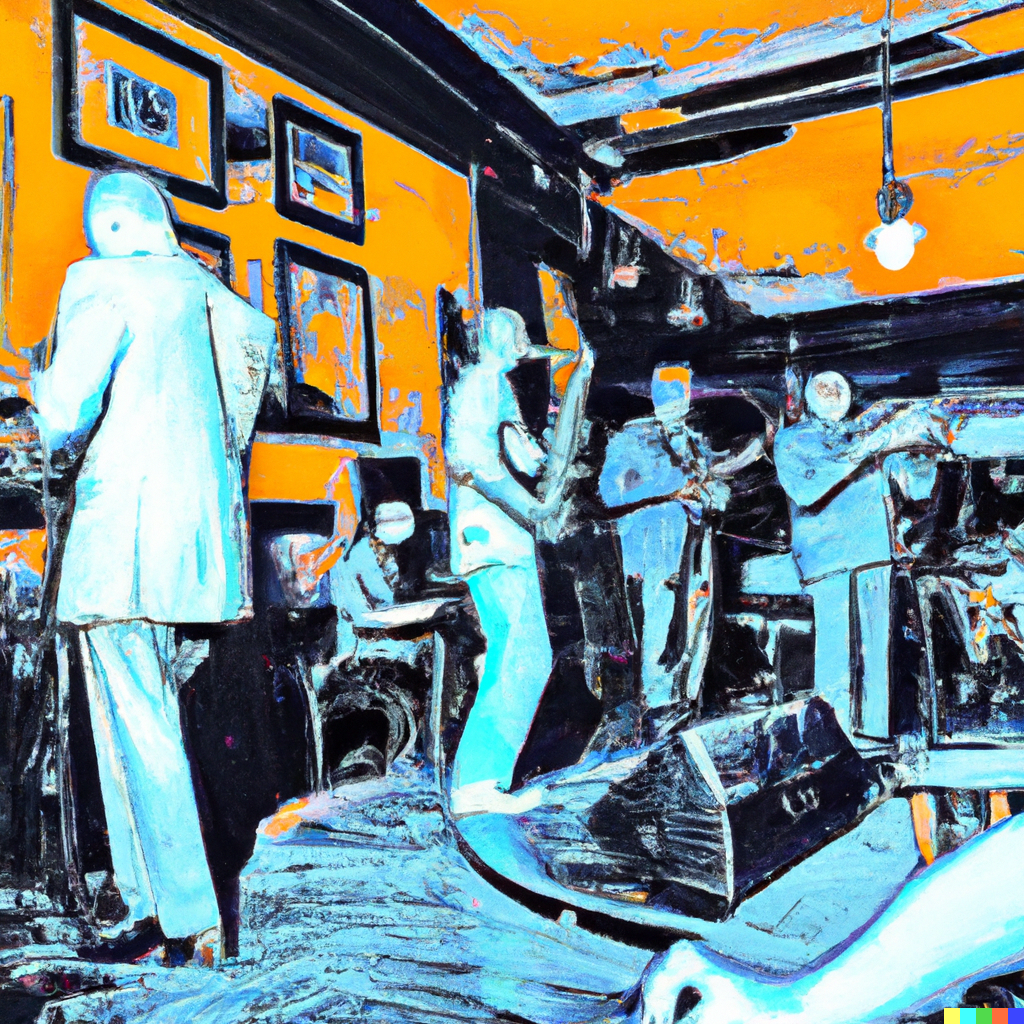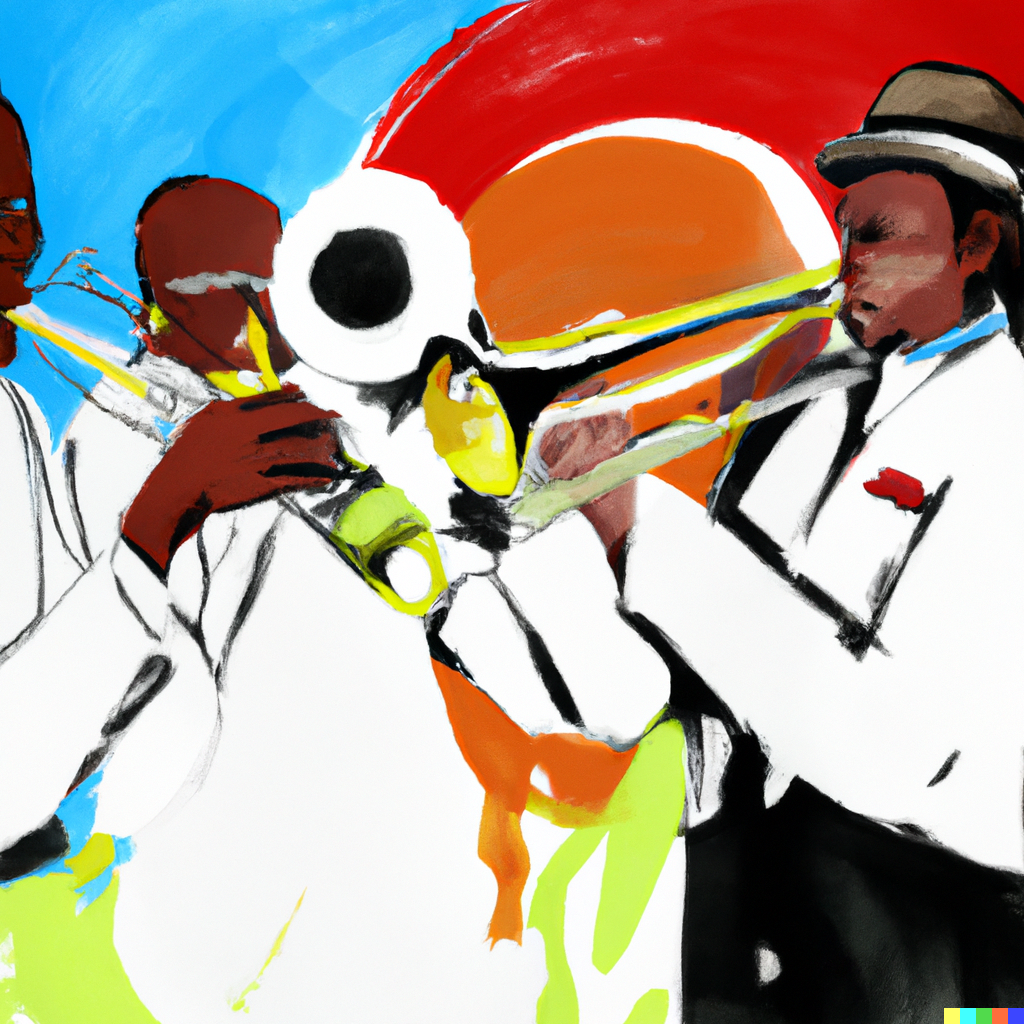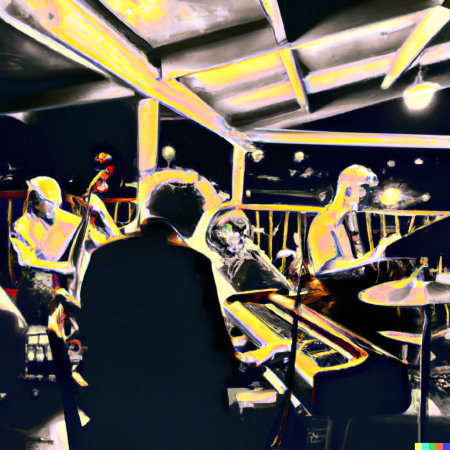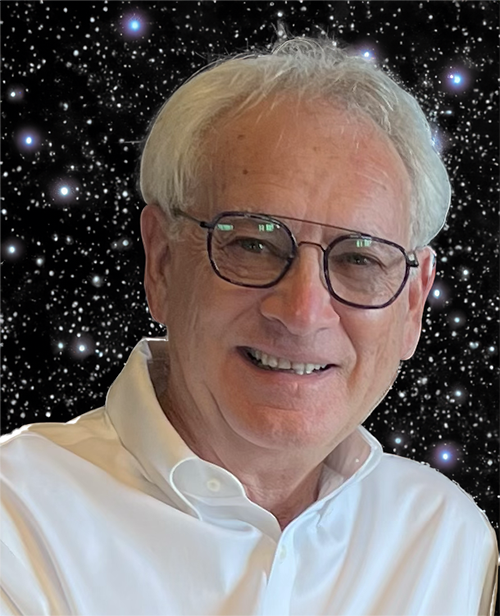[Editor’s Note: First published on e-Discovery Team®, February 25, 2023, republished with permission. Images and Text: Ralph Losey with assists from ChatGPT and DALL-E.]

Richard Braman (1953-2014) founded The Sedona Conference® in 1997. Before that he was a top litigator in San Francisco and Minneapolis where he also owned and operated a jazz club, Gabriel’s. For that reason, I feel certain he would smile at this essay using jazz images to describe the essence of the Sedona Principles that he loved so dearly.
Article written by Open AI’s ChatGPT with all-too-human prompt engineering by Ralph Losey. Hat’s off to ChatGPT-Plus for the excellent jazz-based images and writing. All images by Dall-E and Losey.

In the realm of electronic discovery, a certain rhythm permeates the airwaves, one that resonates with the pulse of jazz music. A harmonious interplay between those who seek information and those who hold it, creates an intriguing melody that’s both enchanting and demanding. The rules that govern this space are like the musical notes that make up a tune, essential to the experience of the listener, the same way that following the right protocol is essential to the seeker’s success.
In this jazz-infused world, the importance of electronic information is akin to the fundamental nature of a rhythm section in a jazz ensemble. Just as the bass, drums, and piano are integral to the musicality of jazz, electronic data is vital to modern life. Its significance is such that it must be carefully tended to, given the same consideration as any other kind of data.
When a seeker is searching for electronic data, they must adopt a musician’s mentality, avoiding excessive requests that sound like dissonant notes in a melody. Their goal should be to play a smooth tune, one that strikes the right chords, avoiding notes that don’t fit. Just as a jazz musician must be aware of their musical costs, a seeker must consider the expenses of pursuing information, keeping in mind the value of the information that is sought.


Just like a jazz band, those who seek and those who hold electronic data must work together in a harmonious exchange. A melody is only successful when everyone plays their part, just like a search for electronic data can only be accomplished with cooperation between parties. A clear and concise request from the seeker must be met with a reply that’s just as clear, like a musician playing a melody that’s understandable to their audience.
In this jazz world of electronic discovery, keeping data secure is like a trumpet player protecting their prized instrument. It’s the responsibility of the data owner to ensure that the data is safeguarded, but they don’t have to keep every single piece of data. Like a jazz musician who only keeps the essential notes to make a melody work, a data owner must protect what is necessary while disregarding what isn’t.

In the event of a dispute, it’s important to have proof, just like a jazz musician who has to demonstrate their musical chops on stage. To prove a point, it’s necessary to play the right notes, and in electronic discovery, it’s crucial to present the right data. The seeker should start by looking in the most accessible places, just like a musician who looks for the right melody in the most obvious places.
If data has been deleted or hard to find, it’s not essential to search for it unless there’s a good reason. Like a jazz musician who only plays what is necessary, the seeker must focus on what’s important to the case at hand. Privacy is another significant concern in this world, like a jazz musician who has to play with a level of restraint to maintain their musical dignity.
In the world of electronic discovery, there are tools that are available to aid in the search for data, just like a jazz musician who uses instruments to create their musical sound. These tools are designed to simplify the process and streamline it, much like a musician who uses new technology to create new sounds.

When data is shared, it should be presented in a way that’s easily understood, like a jazz musician who communicates their musical ideas to their listeners. The data owner is responsible for paying for the safekeeping and sharing of the data, much like a jazz promoter who takes care of the musical instruments and ensures that the performance runs smoothly.



In conclusion, the world of electronic discovery is like a jazz composition, with each player fulfilling a vital role. The right notes, played at the right time, create a melody that’s pleasing to the ears. Similarly, following the right protocols and rules in electronic discovery ensures a successful outcome. Like a jazz musician who respects the music and the other musicians on stage, those who seek and those who hold electronic data must work together with respect and integrity. Only then can the music of electronic discovery be played in perfect harmony, creating a beautiful sound that’s worthy of applause.

Ralph Losey Copyright 2023 – ALL RIGHTS RESERVED


